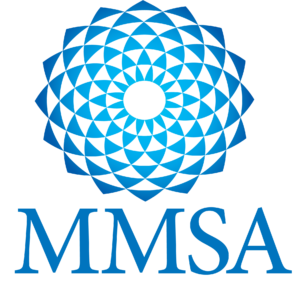Below are descriptions of the workshop sessions we plan to offer during the retreat. Most sessions run for 60 mins while a few will run for 30 mins. Participants will be able to choose their sessions when we share a more detailed agenda closer to the event.
Asking Purposeful Questions (Grades K-8)
Questions are the beginning of a path toward discovery, imagination, and STEM exploration. How can we help youth expand and clarify their thinking and develop their reasoning through the questions we ask them? Come grow in your practice within a supportive group of other educators, and learn about open-source ACRES resources.
CODAP: Data Science meets CS (Grades 4-12)
Bring your device to dive in and get to know CODAP: Common Online Data Analysis Platform. Explore sample data sets and become comfortable with the data analysis tools available. You’ll also learn how to use data your students collect and see how you can easily interact and identify trends in your data.
Connecting Schools with Industry (Grades K-Administrator)
In this session, educators and administrators can learn from MMSA’s STEM Work Force Ready 2030 project about various strategies to engage with local industry leaders and identify skills and practices needed in the current and future workforce that can be integrated in K-12 classrooms.
Engaging Students in Problem Solving with Micro:bits (Grades 4-12)
In this session, educators will engage in the engineering design process to utilize micro:bits to solve a problem. This session can serve as an introduction for participants to the micro:bit platform and coding space.
Experience Building Thinking Classrooms (Grades K-12)
Have you heard of Building Thinking Classrooms (BTC) and are you curious what it’s about? Or do you do BTC in your classroom and want a few fresh tasks to take back with you? Either way, come dive in and experience some real math thinking with other educators. The content will be upper elementary, but the practices apply to any grade level.
Exploring Real Data with Students in Math Class (Grades 6-8)
Learn to model real-life choices in middle school and high school math class. An exploration of a Maine-based dataset and discussion/resources for supporting students in defining their options and using functions to model benefits and consequences of the options.
Gear Up for Outdoor Learning: Essentials for Educators (Grades K-Administrator)
Equip your students for outdoor STEM learning in any season! This workshop, presented in partnership between Maine Early Childhood Outdoors & Maine Gear Share, will provide teachers with essential knowledge on selecting, caring for, and storing outdoor gear. Learn about layering techniques, top-rated brands, funding opportunities, and wholesale options to outfit your entire class with affordable, high-quality gear. Resources are offered at grade-specific levels, making this session ideal for any teacher or administrator.
Incorporating Loose Parts to Ignite Playful STEM Learning (Grades K-5)
Unleash your inner child and discover the endless possibilities of providing open-ended materials during play. Reimagine recess, centers, and more as opportunities for child-led STEM exploration. Find out how simple materials like pinecones, play dough, blocks, and buttons can spark creativity, problem-solving, and engineering skills in young learners.
“Learning About” to “Figuring Out” (Grades 9-12)
Support collaborative learning, deepen conceptual understanding, and improve recall, through the integration of the three dimensions of science learning—while also addressing student interest and context (place) to create more effective, structured opportunities for all students to contribute.
Local Career and Community Knowledge (Grades 6-8)
Explore activities that reflect on how local community knowledge related to cultures and careers can be connected to science curriculum.
Math Fluency Games We Love (Grade K-5)
Come engage in many fun, easy-to-implement, low-prep games that will build your students math fluency. Walk away with games to play tomorrow.
MMSA Project Showcase (Grades K-Administrator)
Learn about the variety of MMSA’s programming and professional development opportunities available to educators and administrators.
Numeracy in Nature: Bringing Math Activities Outside (Grades K-5)
Are you looking for ways to make math engaging and accessible? Join us for an interactive session where we explore Numeracy in Nature and find ways to bring math content to life outdoors with your mathematicians.
Science Flash Talks (Grades K-12)
These 10-minute science sensemaking Flash Talks will explore how cognitive and social processes shape our understanding of science through scientific practices, from using and revising models to interpreting data. Each talk highlights how student questioning, collaboration, and embracing failure drive scientific progress and innovation, both in the classroom and in society.
Supporting Place-Based Lesson Design and Instruction (Grades 4-6)
Equitable sensemaking engages all students in place-based learning by connecting the curriculum to their local context and interests. MMSA’s PeBLES project’s new open-source 4th grade Earth science unit offers a flexible storyline that encourages student participation and exploration. Discover how to tailor lessons to your context, leveraging student interests and local phenomena to enhance learning.
Supporting Play-Based Science and Engineering in Early Childhood (Grades K-5)
Discover how young children naturally engage in Science and Engineering Practices (SEPs) through play! Through video examples and interactive discussions, we’ll explore how they ask questions, analyze data, develop models, and more. You’ll leave with tools, strategies, and inspiration to create purposeful play environments and deepen children’s learning.
Teach ME Outside – Building a Culture Intro (Grades K-12)
Join us for a workshop on how to create a culture of outdoor learning at your school! In this workshop you will explore strategies to support taking students outside, and foster a conversation among your colleagues, admin, and community to support long-term change, and navigate available open-source resources.
Understanding AI Through Google’s Teachable Machine (Grades 4-8)
Learn the basic mechanics of machine learning and the implications of the data used to train the models using Google’s Teachable Machine with examples of integrating ‘Teachable Machine’ into the curriculum.
Wonder Window (Grades K-5)
Are you looking for a STEM outdoor learning activity you can implement with your students? Come outside and get hands-on with this notice and wonder activity.


